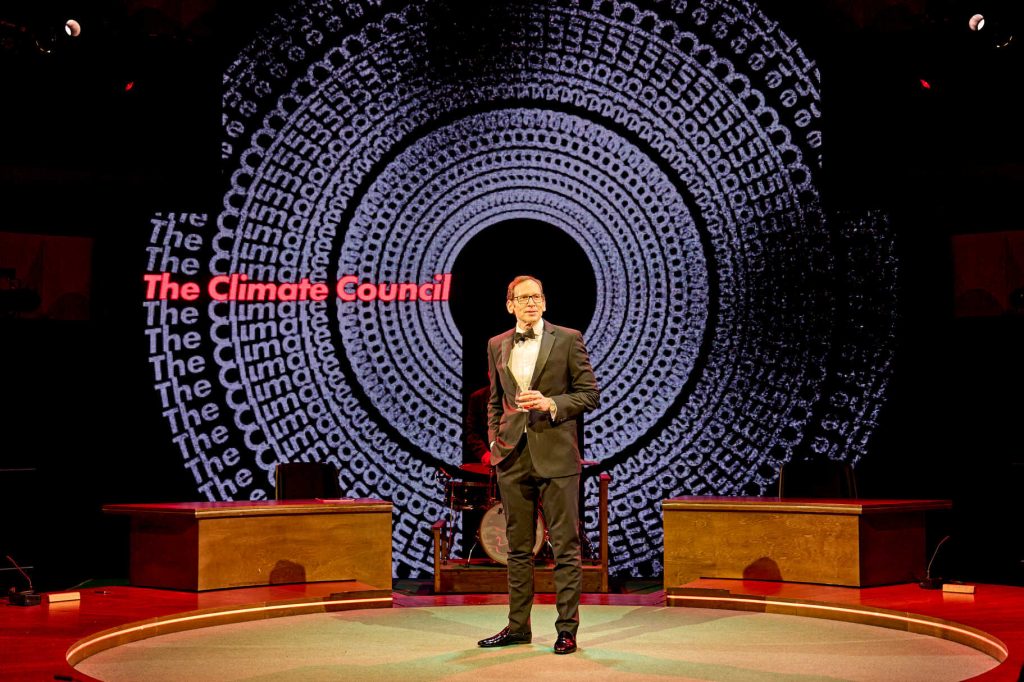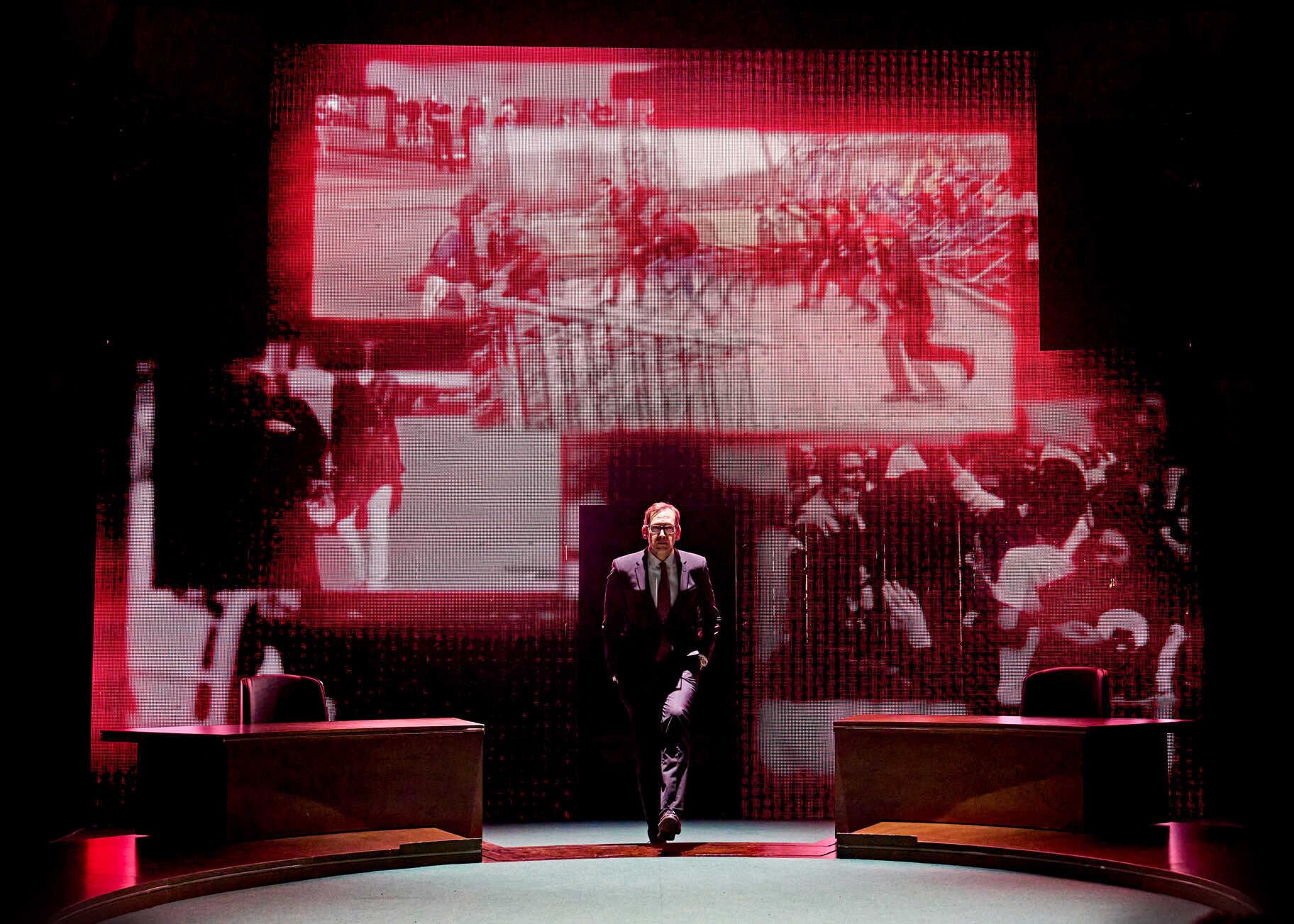Imagine Succession’s Logan Roy gate-crashing a UN climate summit with the swagger of someone who thinks commas are weapons and loopholes are art. That’s Kyoto at Soho Place: a play where bureaucrats argue over adjectives like their lives depend on it (spoiler: they do) and oil lobbyists smirk like Bond villains who’ve swapped martinis for fracking contracts. On the face of it, it’s a cerebral rollercoaster that turns the 1997 climate negotiations into a high-stakes drama.
The story centers on the birth of the Kyoto Protocol, the first binding international treaty aimed at curbing greenhouse gas emissions. At its heart is Don Pearlman, played with oily charm by Stephen Kunken, a fossil fuel lobbyist whose job is to derail progress while looking like he’s helping. Surrounding him is an ensemble of diplomats from 150 nations, each fighting for their own survival or self-interest in a room where compromise feels like betrayal. The stakes? Nothing less than the future of the planet.
Directors Stephen Daldry and Justin Martin stage this drama like a geopolitical chess match, with Miriam Buether’s in-the-round set transforming Soho Place into an arena of fluorescent-lit tension. Delegates circle a central table strewn with coffee cups and crumpled papers, while Akhila Krishnan’s towering video projections magnify treaty drafts to terrifying proportions—turning legal text into battlegrounds. When translators abandon their booths in the dead of night, leaving delegates shouting Mandarin and Swahili into chaos, you feel the weight of fractured diplomacy as if you’re part of it.

Kunken’s Pearlman is magnetic, slithering between delegates with whispered promises and razor-sharp loopholes. His performance is all controlled menace, a masterclass in weaponised charm that makes you shudder every time he smiles. But it’s not just him; the ensemble delivers standout moments too – Ferdy Roberts’ John Prescott hurls Thatcherite zingers like grenades, while Andrea Gatchalian as Kiribati’s delegate transforms statistical despair into gut-wrenching poetry. Even their physicality tells stories: watch how Pacific Island reps lean forward, desperate for attention, while oil-state delegates recline like emperors at an all-you-can-burn buffet.
But despite the sharpness of the writing and the excellence of the lead performance, after an hour it all gets a bit samey. Okay, another comma to argue about. Okay, another 27 adjectives which subtly change the meaning of a phrase. The tension begins to slip as the mind starts to drift. With some of the best shows in London being two hours or less, Kyoto could really do with 45 minutes being shaved off.


